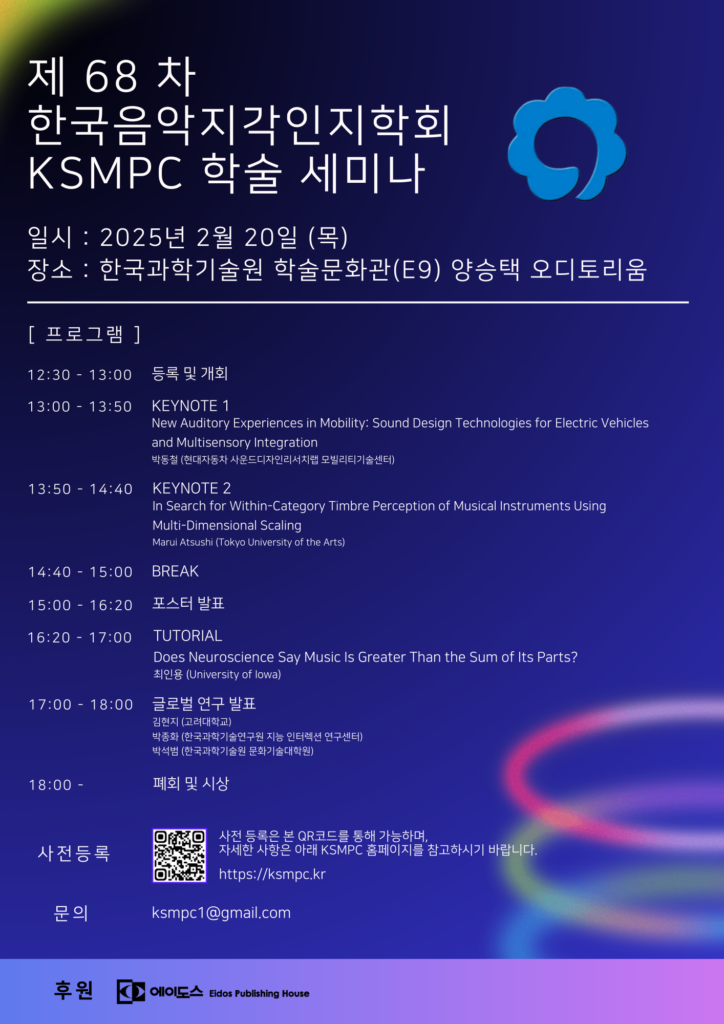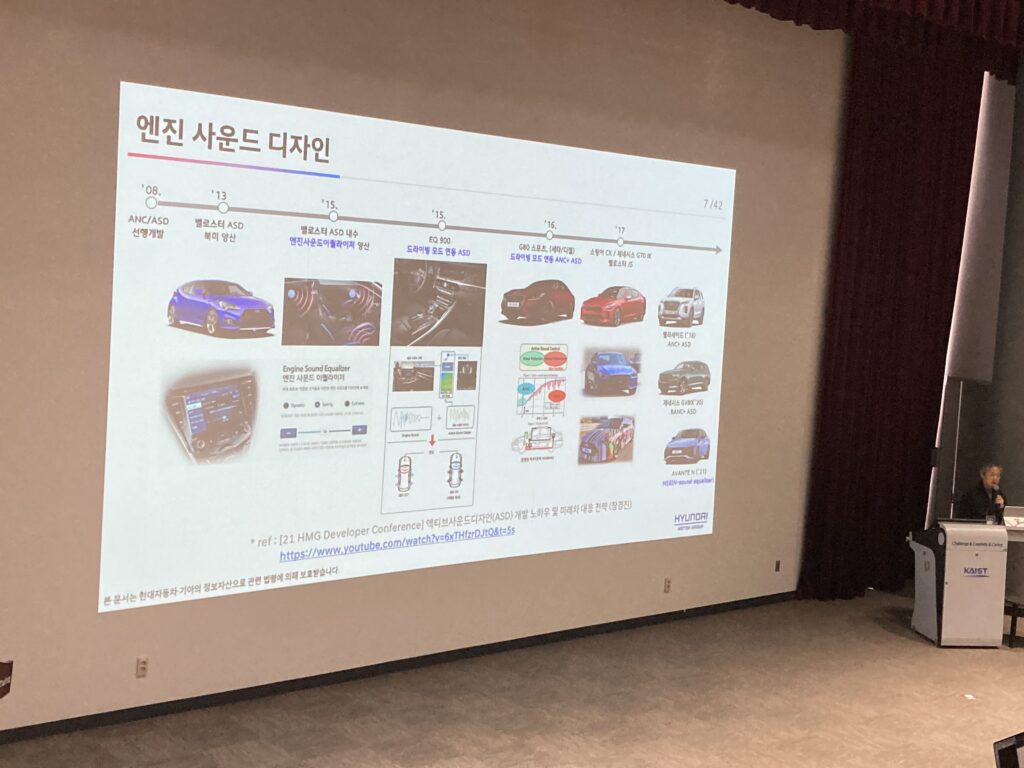
On February 20th, all members of AIRIS LAB participated in the 68th academic conference hosted by the Korean Society for Music Perception and Cognition (KSMPC), held at the Korea Institute of Science and Technology’s Academic and Cultural Center (E9), Yang Seung-Taek Auditorium.

This year’s seminar featured a diverse range of talks exploring the intersections of sound design, timbre perception, cognitive neuroscience, and auditory technology. The event brought together experts from industry and academia to discuss emerging research and applications in music cognition and auditory perception.

The opening keynote, “New Auditory Experiences in Mobility: Sound Design Technologies for Electric Vehicles and Multisensory Integration,” was delivered by Dr. Dong Chul Park from Hyundai Motors. The presentation introduced innovative approaches to auditory UX in electric vehicles, emphasizing the role of multisensory integration in mobility contexts.

The second keynote, “In Search for Within-Category Timbre Perception of Musical Instruments Using Multi-Dimensional Scaling,” was given by Prof. Marui Atsushi from Tokyo University of the Arts, offering insights into perceptual categorization and timbre research using Multidimensional modeling.

Following a poster session and break, Prof. In-Yong Choi from the University of Iowa led a tutorial session titled “Does Neuroscience Say Music is Greater Than the Sum of Its Parts?” The session explored how neuroscience approaches can shed light on the holistic nature of musical experience.
The final session featured global research presentations, including talks by:
- Hyunji Kim (Korea University)
- “Discriminatory eye movements reflecting processing loads in pitch and rhythm during music score reading”
- Jonghwa Park (Intelligence and Interaction Research Center, KIST)
- “Effects of Multimodal Acoustic Therapy on Music and Speech Perception in Pediatric Cochlear Implant Users”
- Seokbeom Park (Graduate School of Culture Technology, KAIST)
- “Enhancing predictive models of music familiarity with EEG”
These talks spanned interdisciplinary topics in brain science, interactive systems, and music cognition, showcasing the latest findings from global research collaborations.


The seminar concluded with a closing and awards session, marking another successful gathering of researchers dedicated to the science of music perception and cognition.